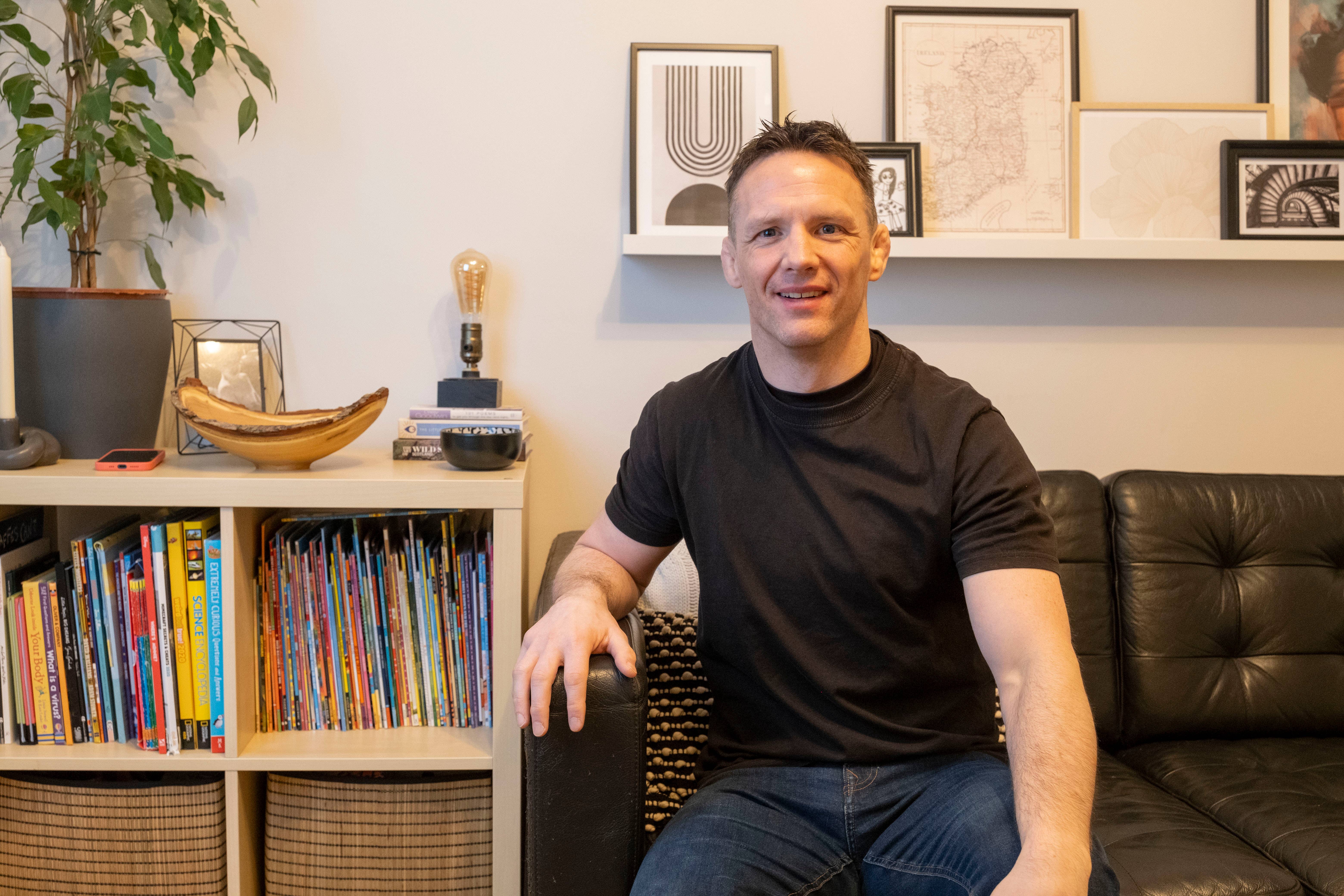Father tells of pride after kidney donation led to transplants for three people
Paul McVeigh, who lives in Glasgow, said ‘it felt like a demonstrably good action’.

Your support helps us to tell the story
From reproductive rights to climate change to Big Tech, The Independent is on the ground when the story is developing. Whether it's investigating the financials of Elon Musk's pro-Trump PAC or producing our latest documentary, 'The A Word', which shines a light on the American women fighting for reproductive rights, we know how important it is to parse out the facts from the messaging.
At such a critical moment in US history, we need reporters on the ground. Your donation allows us to keep sending journalists to speak to both sides of the story.
The Independent is trusted by Americans across the entire political spectrum. And unlike many other quality news outlets, we choose not to lock Americans out of our reporting and analysis with paywalls. We believe quality journalism should be available to everyone, paid for by those who can afford it.
Your support makes all the difference.A father who donated his kidney to a stranger, sparking a chain reaction which led to a total of three transplants, has shared his story to raise awareness about altruistic donation.
Paul McVeigh, 41, donated a kidney in early 2023 after reading about altruistic kidney donation online.
The father-of-two was entered into the UK Living Kidney Sharing Scheme, which in turn triggered a chain of three other matches.
More than 400 people in Scotland are awaiting a kidney transplant, with living kidney donation playing a vital role in increasing donation and transplantation rates.
Mr McVeigh’s donation took place at the Queen Elizabeth University Hospital in Glasgow.
He said he had been thinking about donating a kidney for a while following a conversation with his wife Maeve, a doctor.
Overall, it felt like a demonstrably good action - something that would make my children proud and which fell in line with the type of person I aspire to be
Mr McVeigh, who lives in Glasgow, said: “I was speaking to my wife about one of my grandparents who had been on dialysis, and she told me about patients she had treated who had renal failure, its impact on their lives, and the difference that kidney transplants can make.
“It really got me thinking about how I could change someone’s life in this way.
“There were loads of reasons that I wanted to do it. I’d worked professionally in sports for many years and I’ve been lucky enough to remain in good health my whole life.
“I was in a good place to donate physically and I wanted to pay forward my good fortune.”
He said that after thinking about it for a year, “the pros significantly outweighed the cons”.
He added: “Overall, it felt like a demonstrably good action – something that would make my children proud and which fell in line with the type of person I aspire to be.”
Mr McVeigh, who is originally from Drumaness in County Down, Northern Ireland, then registered his interest with NHS Blood and Transplant online.
After a number of tests, he was deemed suitable to donate his kidney, which he says he was “relieved and excited” about.
Mr McVeigh is a retired mixed martial arts professional and now runs a gym where he coaches the sport.
The surgery lasted several hours and he said he felt “pretty normal” after around two weeks, and he returning to coaching about three months later.
He said: “Being down one kidney has had no impact on my life whatsoever. I’m just as healthy as I was before, though donating my kidney has encouraged me to take better care of myself.
“A few months after my donation, I got a letter from the individual who received my kidney to thank me for my donation.
“I learned it was a man around my age, and it does make me proud knowing that I’ve been able to change his life like this. It’s something that I’ll always be able to look back on.
“It’s not a decision to be taken lightly, but for anyone considering altruistic donation, I’d stress how glad I am that I did it.
“I’m living my life exactly the same way now that I would have done without donating, but I’ve been able to change the lives of three other people.”
Donor-recipient pairs who are incompatible and unable to donate directly, one to the other, are registered in a national scheme to achieve compatible transplants with other pairs.
When two pairs are involved it is called paired donation, and more than two pairs is called pooled donation.
Mr McVeigh’s donation sparked an altruistic donor chain – where a person who donates anonymously to a recipient on the waiting list, the donated kidney is allocated to a recipient in a paired or pooled scheme.
In turn, the donor registered with that recipient donates to another recipient, and so on.
The chain ends when the last donor gives to a recipient on the national transplant list.
Kidneys from living donors are generally better suited for patients in need, and the donor can continue to live a normal life with one working kidney.
More than 100 people in Scotland have altruistically donated a kidney since 2006.
There have been 1,905 kidney transplants from living donors in Scotland since it pioneered more than 60 years ago, with 95 taking place last year.
Jen Lumsdaine, lead nurse for Living Donation Scotland, said: “For those with kidney failure who are facing treatment choices, we know that talking about living donation with family and friends can be challenging.
“The more we can raise awareness of living kidney donation the easier it is to talk about it.
“We also know that living kidney donation transforms lives – and we thank the donors and their support networks for this exceptional gift.”
For more information visit livingdonation.scot.